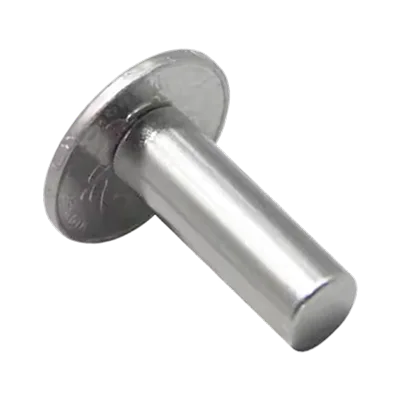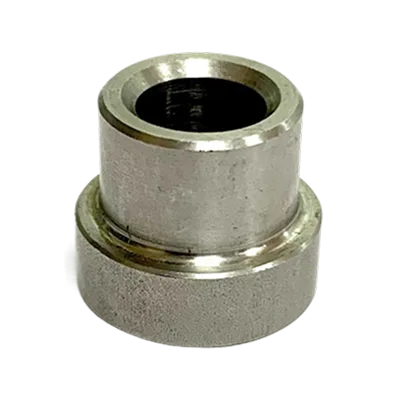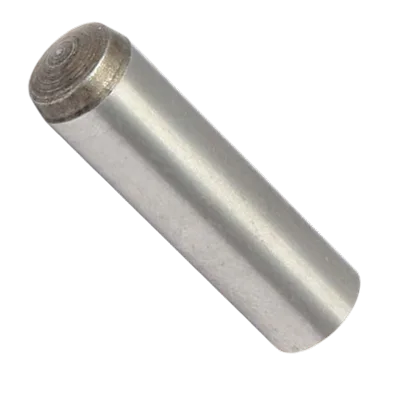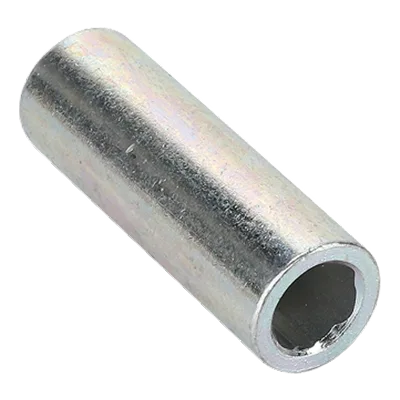
Rivet manufacturing
At Lemec, we are your rivet manufacturer in Spain, specialized in the production of rivets by cold heading for big batches. Our dedication to quality and precision positions us as a leader in the industry, offering robust and durable solutions for a variety of industrial applications.

Rivets for special applications
Our rivets are manufactured to meet the needs of very specific industrial applications. At Lemec, we manufacture semi-tubular rivets that offer an excellent combination of strength and adaptability.
Rivets of various diameters are available to ensure a perfect fit in any application.
Semi-tubular rivets
Our semi-tubular rivets are ideal for APPLICATIONS REQUIRING A SECURE, DURABLE AND HIGH SPEED ASSEMBLY (ONE SHOT).
Precision engineered, these rivets ensure superior performance in critical environments.
Solid rivets
Solid rivets are ideal for applications requiring a permanent bond with maximum shear and tensile strength in both hot and cold riveting processes. Manufactured from high-strength steel, aluminum and copper using stamping processes, they guarantee a durable and stable anchorage even in environments with significant vibrations and dynamic loads.
Various diameter rivets
At Lemec, we have the capacity to manufacture rivets with various diameters in their structure. The objective is to adapt to materials of different thicknesses and to provide a robust and secure fixing. These rivets are especially useful in applications where a perfect fit is required in different layers of material, guaranteeing an optimal and resistant fastening.
Manufacturing of rivets in different alloys

Our experience in the manufacture of rivets in different alloys allows us to offer products that meet the highest quality standards. At Lemec, we produce rivets in steel, stainless steel, brass and aluminum, guaranteeing an adequate solution for every need.
Stainless steel rivets
Lemec stainless steel rivets are known for their corrosion resistance and durability, ideal for applications in harsh environments.
Brass rivets
We can also manufacture brass rivets that combine excellent corrosion resistance with an aesthetic appearance, perfect for applications that require both factors.
Aluminum rivets
For applications where weight is a critical factor, we have the capability to produce custom aluminum rivets to customer specifications.
Copper rivets
For applications where weight is a critical factor, we have the capability to produce custom aluminum rivets to customer specifications.
Rivets for different sectors
At Lemec, we manufacture rivets for a wide variety of industrial sectors, ensuring that each of our products meets the specific requirements of each industry.
Automotive
The automotive industry demands specific rivets to secure components with precision and
resistance, capable of meeting the specifications of this sector.
Construction
The construction industry requires rivets that provide secure and durable fasteners, essential for the structural integrity of elements that are part of buildings.
Aeronautics
The aerospace industry requires high quality and reliable rivets. At Lemec we manufacture custom rivets to ensure safety and efficiency in aerospace applications.
Cutlery
Both in cutlery and in cutlery in general, rivets are usually required to fix the handles.
Frequently Asked Questions
Which type of rivet is best for my assembly: solid, semi-tubular, or tubular?
• Solid: maximum shear and tensile strength; ideal for critical joints and vibration-prone environments.
• Semi-tubular: requires less setting force, suitable for thin sheets and to minimize deformation of the base material.
• Tubular: lightweight solutions with controlled deformation for thin assemblies.
For special rivets, diameters, heads, and lengths can be customized according to drawings to optimize the joint.
How are metal rivets manufactured in series?
What materials and surface finishes are recommended depending on the working environment?
Finishes: zinc plating (white/yellow), nickel plating, black oxide, anti-corrosion coatings such as Zn-Al, and anodizing in aluminum. Selection depends on expected corrosion, galvanic compatibility, and aesthetics.
What critical parameters and quality controls must a rivet manufacturer like LEMEC ensure?
• Shank-to-head concentricity and shank roughness to facilitate riveting.
• Hardness and shear/tensile testing of the assembly.
• Batch sampling verification, traceability, and finish control (coating thickness).
How do I determine rivet length based on grip (total stack thickness)?
L ≈ total grip thickness + 1.3 to 1.5 × D
where D is the shank diameter.
Example: if the stack thickness is 3 mm and the rivet diameter is D = 4 mm, an approximate length would be:
L ≈ 3 + (1.5×4) = 9 mm.
Adjust according to head type and required standard.








